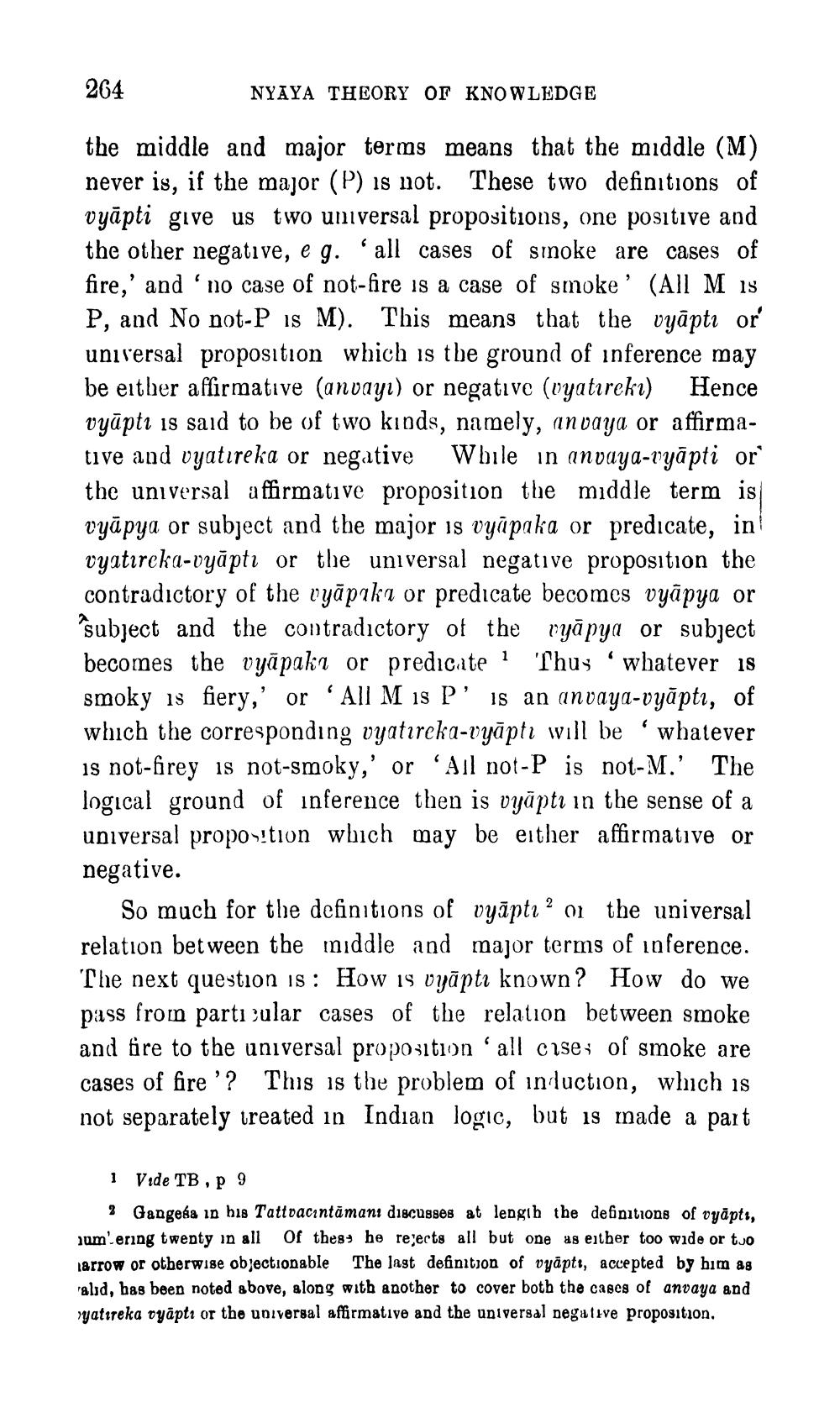________________
264
NYAYA THEORY OF KNOWLEDGE
the middle and major terms means that the middle (M) never is, if the major (P) is not. These two definitions of vyāpti give us two universal propositions, one positive and the other negative, e g. all cases of smoke are cases of fire,' and 'no case of not-fire is a case of smoke' (All M 18 P, and No not-P is M). This means that the vyāptı or universal proposition which is the ground of inference may be either affirmative (anvayı) or negative (vyatıreki) Hence vyāpti is said to be of two kinds, namely, anvaya or affirmative and vyatıreka or negative While in anvuya-vyāpti or the universal affirmative proposition the middle term is vyāpya or subject and the major is vyāpaka or predicate, in vyatıreka-vyāptı or the universal negative proposition the contradictory of the vyāpakı or predicate becomes vyāpya or îsubject and the contradictory of the vyāpya or subject becomes the vyāpakr or predicate 1 Thus 'whatever is smoky is fiery,' or 'All M is P' is an anvaya-vyāptı, of which the corresponding vyatıreka-vyāptı will be whatever is not-frey is not-smoky,' or 'All not-P is not-M.' The logical ground of inference then is vyāpti in the sense of a universal proposition which may be either affirmative or negative.
So much for the definitions of vyāptı? 01 the universal relation between the middle and major terms of inference. The next question is: How is vyāptı known? How do we pass from partiular cases of the relation between smoke and fire to the universal proposition 'all cise: of smoke are cases of fire'? This is the problem of induction, which is not separately created in Indian logic, but is made a part
1 Vide TB, P 9
3 Gangesa in bis Tattvacıntāmanı discusses at length the definitions of vyaptı, Jum'ering twenty in all of thes; he rejects all but one as either too wide or tjo larrow or otherwise objectionable The last definition of vyāptı, accepted by him as ralid, has been noted above, along with another to cover both the cases of anvaya and yatıreka oyāptı or the universal affirmative and the universal negative proposition,




